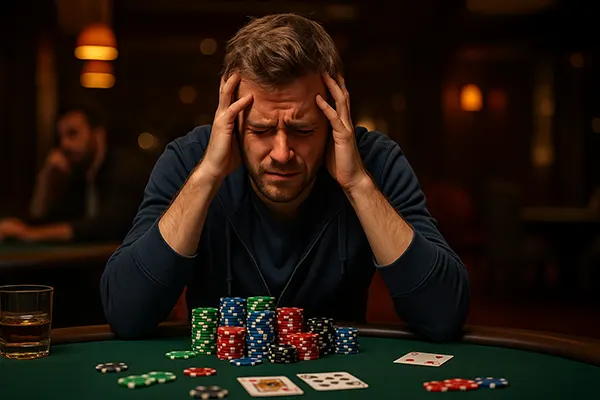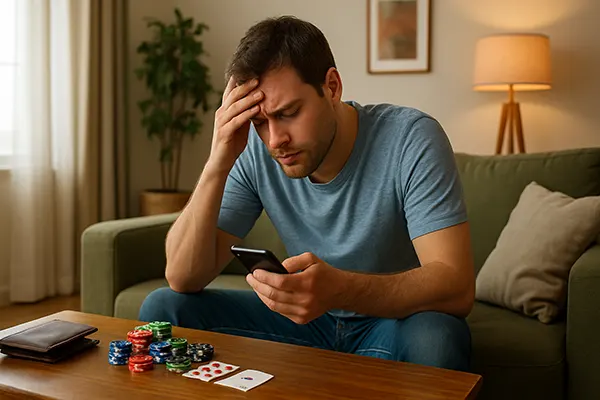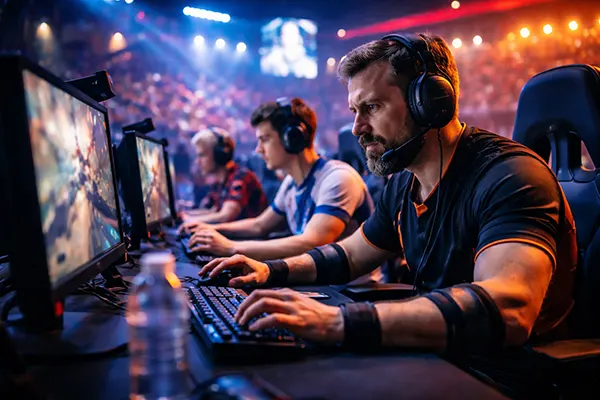Poker and Mental Health: Preventing Burnout, Addiction, and Tilt

In the high-pressure world of poker, mental strength is just as vital as strategic skill. Whether you’re playing professionally or recreationally, maintaining psychological well-being is essential to ensuring consistent performance and personal balance. Mental fatigue, emotional instability, and compulsive behaviour can derail even the most experienced players. This article explores how to protect your mental health while playing poker, providing expert-backed strategies and relevant insights as of June 2025.
Recognising and Managing Poker Burnout
Poker burnout often emerges silently. It’s not merely feeling tired after a long session—it’s a persistent sense of exhaustion, emotional detachment, and reduced efficiency that develops over time. Players may continue grinding despite their declining focus and increasing frustration, driven by habit or financial pressure. Recognising the early symptoms—such as a lack of motivation, decision fatigue, and irritability—is the first step toward regaining control.
According to mental health professionals, burnout in poker is similar to that experienced in high-stress jobs. The key to prevention lies in building a sustainable routine. This includes regular breaks, sleep hygiene, and limiting the number of hours played per week. Players should also avoid relying solely on poker for identity and satisfaction—having outside interests and hobbies greatly contributes to long-term balance.
Professional players today often work with coaches not just for strategy but also for mental wellness. Integrating self-reflection, journaling sessions, or using modern apps for mood tracking helps identify emotional dips early. The aim is to create boundaries that protect both performance and peace of mind.
Creating a Healthy Playing Environment
The physical and digital environments in which poker is played can significantly impact mental health. A cluttered space, lack of ventilation, or even screen fatigue can amplify stress levels. Setting up a comfortable, organised, and well-lit playing area promotes focus and reduces the risk of overstimulation or distraction.
Many players also benefit from establishing rituals before sessions. Whether it’s a short meditation, a five-minute walk, or reviewing notes, these habits signal the brain that it’s time to engage with intent. Equally important is the ability to disconnect completely after sessions, allowing the mind to reset and avoid lingering tension or obsessive thought cycles.
Lastly, players should stay hydrated, eat nourishing meals, and exercise regularly. These foundational habits are often underestimated but crucial for building mental resilience and physical endurance.
Understanding and Preventing Poker Addiction
Poker addiction is a serious mental health concern that can affect players regardless of their skill level. It is characterised by compulsive behaviour, such as playing beyond financial means, hiding gambling habits from loved ones, or neglecting responsibilities. Addiction thrives in secrecy and denial, so self-awareness and early intervention are critical.
Modern responsible gambling initiatives recommend practical steps for prevention. Setting strict deposit limits, using reality checks, and implementing self-exclusion options are effective tools. Online poker operators in 2025 have improved monitoring systems to flag concerning patterns of play, offering referrals to support services when needed.
Support from friends, family, and mental health professionals plays a vital role. Talking openly about poker habits without stigma allows at-risk players to seek help early. Access to helplines and online counselling services has become more streamlined and user-friendly, providing discreet support whenever it’s needed most.
Red Flags and When to Seek Help
Key warning signs of addiction include chasing losses, lying about time or money spent on poker, and an inability to stop playing despite negative consequences. These patterns often evolve gradually, making them difficult for individuals to notice themselves.
When such behaviour emerges, seeking help from licensed therapists specialising in gambling disorders is crucial. In the UK, organisations like GamCare and Gambling Therapy offer professional assistance, and their services have expanded with additional digital options since 2024.
There is no shame in addressing gambling problems. On the contrary, recognising the issue and taking action is a sign of strength. Recovery is entirely possible with the right guidance and support systems.

Managing Tilt and Emotional Stability
One of the most common challenges in poker is tilt—emotional instability that clouds judgment and leads to impulsive decisions. Whether triggered by a bad beat, prolonged variance, or personal stress, tilt can undermine hours of solid play in a matter of minutes.
Preventing tilt starts with emotional awareness. Learning to pause when agitation rises, analysing triggers, and employing calming techniques like breathwork can make a significant difference. Tilt is not just about anger—it includes anxiety, overconfidence, and impatience as well.
Elite players now incorporate mindfulness techniques into their routines. Apps such as Headspace or Calm, as well as breathing exercises or simple visualisation strategies, are popular tools. The goal is not to eliminate emotions but to respond to them with clarity instead of reactivity.
Building Emotional Resilience at the Tables
Emotional resilience is the capacity to stay grounded during wins, losses, and everything in between. This quality develops through experience, reflection, and a willingness to confront uncomfortable moments honestly. Journaling post-session emotions and reviewing specific hands that triggered reactions can be invaluable.
Establishing a strong support network—either within the poker community or beyond—also helps players share experiences, gain perspective, and reduce isolation. Peer discussion groups or forums are especially helpful in normalising struggles that many face but few openly talk about.
Lastly, a balanced life off the tables strengthens emotional control on them. Relationships, creative outlets, and a sense of purpose beyond the game provide much-needed grounding, enabling players to weather both hot streaks and downswings without losing their centre.




